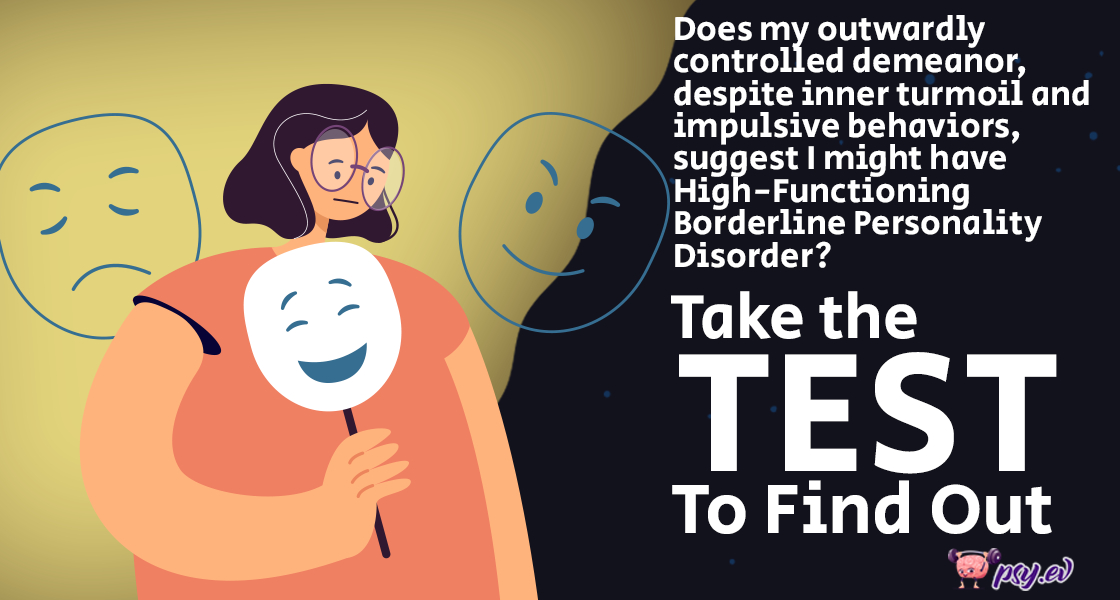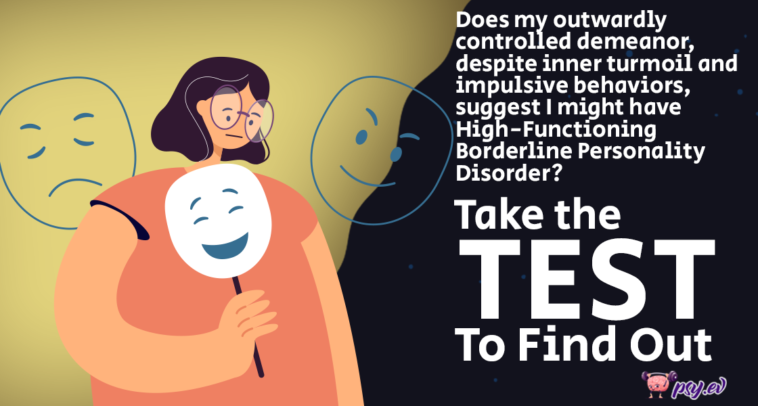Individuals who have high-functioning borderline personality disorder symptoms are quieter and more internally centered. Depression, strong emotions, and self-judgment are all high-functioning borderline personality disorder symptoms.This test was created by professional mental health specialists to help individuals identify if they have a high-functioning borderline personality. You can seek assistance in treating it in a way that improves the quality of your life.
High-Functioning Borderline Personality Disorder Causes and Signs
How can you get high-functioning borderline personality disorder? Trauma is a common cause of high-functioning BPD. Additionally, trauma can manifest itself as ongoing emotional abuse or neglect. The signs of high-functioning borderline personality disorder are more visible in early adult years.
BPD can provide difficulties in a variety of spheres of life. It may have a detrimental effect on close relationships, academic and professional performance, social engagement, and self-esteem.
The signs of high-functioning borderline personality disorder include having the ability to secretly manage BPD while hiding one's anxiety from others and getting through the day.
People with high-functioning BPD keep a distance from people in order to prevent conflicts. You're able to conceal your symptoms from others. However, you are struggling alone because the emotions are still unraveling inside of you.
There are times when the symptoms of high-functioning BDP are confused with other mental health conditions. A person with high-functioning BDP tends to place too much blame on outside factors rather than realizing they are suffering from a mental health condition. Finding the answers you need is as simple as taking a borderline personality disorder test.
Both the individual with high-functioning borderline personality disorder and their loved ones may find it difficult to cope with the condition. Nevertheless, there are coping mechanisms and therapeutic choices that can improve your quality of life and control your symptoms.
Here’s What You Should Do After Taking the Test
If the test result is positive, visit a mental health specialist. Do not be afraid to seek assistance. Immediate treatment can step in and protect you from harmful symptoms and repercussions. It can also equip you with the skills you need to lead a more secure and satisfying life.
Although your high-functioning borderline personality disorder will not completely disappear throughout therapy, it is treatable. With techniques like dialectical behaviour therapy (DBT), symptoms can be significantly decreased.
You can also feel confident in your development and experience less negativity and guilt. Living with borderline personality disorder can be difficult for anybody, and we know this.
It may be simpler to cure some high-functioning BPD symptoms than others. The hardest symptoms to heal are the fear of abandonment, erratic relationship patterns, and feelings of loneliness.
Treatment works best for symptoms including anger, self-harm, attempted suicide, and general everyday functioning.
Some people who have improved their symptoms may experience symptoms from co-occurring conditions such as depression, drug misuse, eating disorders, or post-traumatic stress disorder. Fortunately, once they have been treated, symptoms associated with high-functioning BPD seldom return.
When you visit a professional for your treatment program, they can help you understand the probable causes and draw a path to recovery. Highly qualified mental health specialists offer a variety of therapy to meet each patient's requirements best.
Contact a professional for more details about their high-functioning BDP program. Calling for assistance is all it takes.


